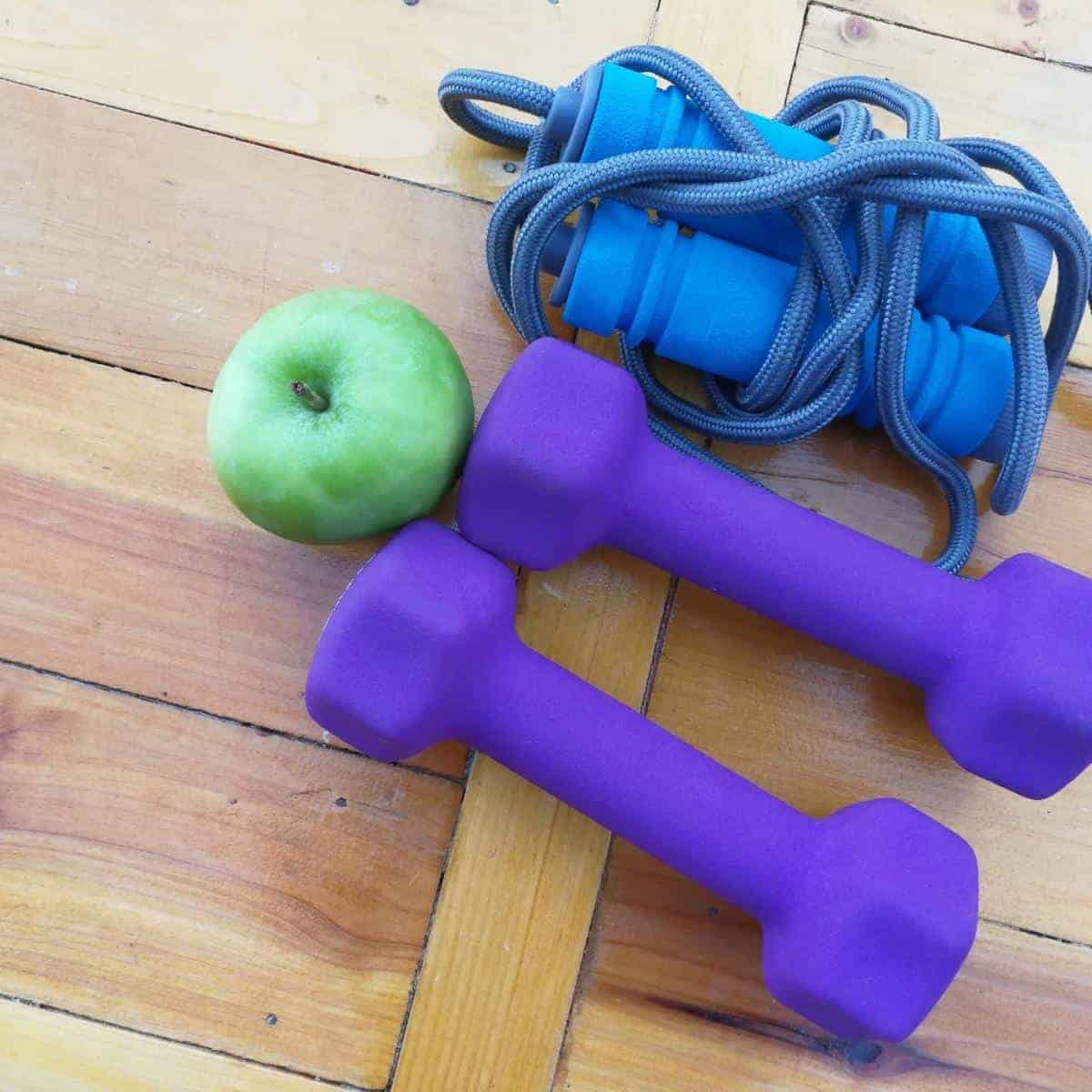How Weight Loss Affects Your Menstrual Cycle
If you’ve ever noticed changes in your menstrual cycle after gaining or losing weight, you’re not alone. Many women experience shifts in their periods when they make changes to their body weight, but how exactly does weight affect your menstrual cycle?
In this blog, I’ll break down everything you need to know about how weight loss (or gain) can affect your menstrual cycle and the regularity of your period. From whether losing weight can trigger your period or stop it altogether, to the links between weight loss and menopause.

Can Weight Loss Trigger Your Period?
Yes, weight loss can indeed trigger your period, but it depends on the situation and how much it can affect your menstrual cycle.
If you’ve lost weight and your period comes back after a long absence (like amenorrhea, which is when periods stop for several months), it’s possible that returning to a healthier body weight has helped balance your hormones. This is common among women who experience hypothalamic amenorrhea, a condition often caused by excessive exercise, stress, or being underweight.
Here’s what happens: When your body doesn’t have enough energy (due to a low body fat percentage or overexercising), it can disrupt the production of essential reproductive hormones like oestrogen. This can stop ovulation and, as a result, pause your menstrual cycle. Losing weight healthily and then stabilising your body with better energy levels and nutrients can help your cycle restart.
That said, unlike a fairytale moment in a movie, there’s no “one-size-fits-all” here. Everyone’s body responds differently, and what may affect your menstrual cycle may not affect someone else’s!
Can Weight Loss Stop Your Period?
On the flip side, yes, weight loss can also stop your period, but only if it’s extreme, unhealthy, or too rapid.
Your menstrual cycle relies on a delicate balance of hormones like oestrogen and progesterone, and those hormones are tightly linked to your body fat levels. When you lose too much weight or your body fat percentage gets too low, your brain may perceive it as a sign that your body isn’t in a healthy state to support a pregnancy.
Enter hypothalamic amenorrhea (again!), where your brain cuts off the signals to your ovaries to release eggs because it senses you’re missing vital energy reserves. If this happens, it will affect your menstrual cycle and your period could temporarily stop.
Weight loss has to be done sensibly. Fad diets and crash diets might promise to shed weight quickly, but they can throw your body’s natural rhythm completely off track, which is not ideal for long-term health.
Can Weight Loss Trigger Menopause?
Menopause typically occurs between the ages of 45 and 55, depending on your genetic makeup and overall health. But can weight loss trigger menopause earlier than expected? The answer is a bit more complex.
Extreme or chronic weight loss won’t directly send you into menopause, but it can speed up the timeline if it disrupts hormonal balances severely. Why? Oestrogen, the key hormone in our menstrual cycle, is partially stored in body fat. If your body fat percentage drops too low over a long period, it could affect your menstrual cycle and lead to perimenopausal symptoms like irregular periods or even speed up the progression to menopause.
It’s also worth noting that while being overweight doesn’t necessarily prevent menopause entirely, excess fat can produce more oestrogen, which could delay it slightly.
Can Weight Loss Delay Menopause?
If you’re wondering whether weight loss might have the opposite effect and delay menopause, the short answer is probably not. However, maintaining a healthy body weight and adopting a balanced lifestyle with nutritious eating and exercise could reduce some early symptoms associated with menopause, like hot flashes or irregular periods.
Staying active has long been suggested as a way to promote hormonal balance and keep your body healthier overall, which can help make the transition into menopause smoother.
Can Weight Loss Help Shrink Fibroids?
Fibroids are non-cancerous growths in the uterus. While they’re relatively common (especially in women between 30 and 50), they can sometimes cause heavy periods, pain, or a swollen abdomen.
The good news? Weight loss might help shrink fibroids, especially in cases where they’re linked to higher oestrogen levels. Since body fat produces oestrogen, losing weight could help decrease excess oestrogen and, as such, reduce fibroid growth.
That said, not all fibroids are linked to weight, so this isn’t a guaranteed fix, but maintaining a healthy weight and balanced lifestyle is always a good idea for other reasons, like heart and metabolic health.
How to Maintain a Healthy Weight do it doesn’t affect your menstrual cycle
If you’re worried about how weight loss or gain could affect your menstrual cycle, the key is to take a steady, sustainable approach.
Here are some quick tips to stay on track without throwing your hormones into chaos:
1. Go Slow and Steady
Avoid crash diets or extreme calorie restrictions. Aim for a slow, steady weight loss of around 1–2 pounds per week, which is sustainable and less likely to mess with your hormones. Crash diets can not only affect your menstrual cycle but also are not sustainable long-term.
2. Fuel with Nutrient-Rich Foods
Focus on whole, unprocessed foods like lean proteins, healthy fats, fruits, and veggies. Don’t skip carbs entirely either; they’re your body’s preferred energy source and are vital for hormonal balance.
3. Don’t Overdo Exercise
Exercise is great for your health, but too much can lead to problems like hypothalamic amenorrhea. Balance high-intensity workouts with activities like yoga, walking, or Pilates, which are gentler on your body and help reduce stress. Exercise can really affect your menstrual cycle, so be careful and try different things until you find what works for you.
4. Check Your Stress Levels
Chronic stress can mess with your hormones and affect your menstrual cycle, too. Finding ways to manage stress, like meditation, journaling, or even a good laugh with friends, can help keep your cycle regular. If you struggle to find an exercise you enjoy and have problems with stress, how about using a punchbag?
5. Track Your Cycle
Use apps or journals to track changes in your period. It’ll help you notice patterns and better understand how your lifestyle can affect your menstrual cycle over time.
6. Consult a Doctor if Needed
If you experience significant changes in your period or miss periods for more than 3 months, speak with a healthcare professional. Hormonal imbalances may require further checks by your GP or referral to a gynaecologist.
Overall thoughts
Your menstrual cycle is like a window into your overall health, and it’s closely tied to your weight and lifestyle choices. Whether you’re losing weight to improve your fitness, boost your health, or feel more confident, it’s important to prioritise balance and sustainability.
Remember, changes in your period can happen when you lose weight, but if something feels off or unusual, don’t hesitate to reach out to a trusted healthcare provider.
And most importantly? Listen to your body. It’s amazing, resilient, and always trying to tell you what it needs.
Has weight loss changed your periods? Did you find it to affect your menstrual cycle in general or perhaps kick-start perimenopause? Let me know in the comments below if you feel comfortable sharing.






